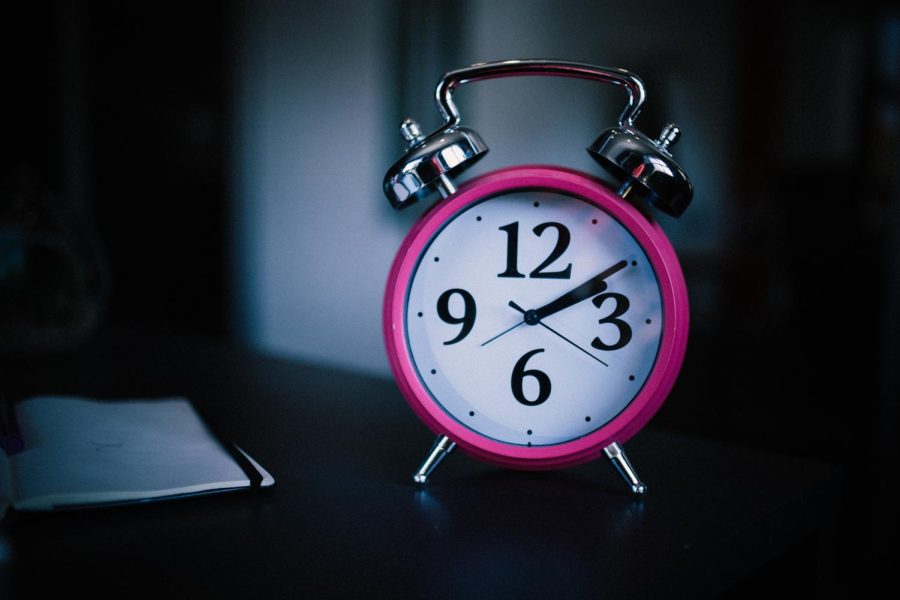Sleep Deprivation and the Negative Impacts
March 28, 2023
Our bodies naturally flow on their own clock, known as the circadian rhythm. Circadian rhythms are the body’s behavioral patterns over a 24-hour cycle. In this cycle, teenagers are recommended to get in between 8-10 hours of sleep every night. But in reality, students’ lives are full of school, homework, jobs, sports, chores, and so much more going on–in turn, sleep patterns are often disrupted by these busy schedules. With this situation, students often make the sacrifice of staying up late, getting little sleep. For teens, more things get done by not sleeping than sleeping…or so it seems.
Sleep appears to just be one of those things we do each day, but in truth, it’s just as important as eating or breathing. This is because while sleeping, your brain forms new neural pathways that allow for faster thinking and better memory. Without it, brains basically turn to mush. It causes a slowdown in the brain, and in response, it needs to catch up with more sleep. As this rigorous cycle continues, the damage gets worse and worse and can lead to some nasty side effects.
Mentally, sleep deprivation has widely adverse effects. The symptoms range from increased anxiety and depression, to daytime sleepiness, to lack of focus, to dull moods. All of these affect a student’s day to day life, especially in a school setting. And physically, the effects are even more devastating. Young adults and teenagers are also much more prone to injuries if they have sleep deficiencies. You are more likely to endure injuries because protein synthesis, muscle recovery, and inflammatory responses are disrupted by sleep deprivation. This means there is more abuse on your body while playing sports. Getting proper sleep is especially important for student athletes for this reason. People are also put at serious health risks for long term sleep deprivation like increased risk of hypertension, diabetes, obesity, depression, heart attacks, and strokes. In the end, your whole body becomes at risk, and it is reasonable for any person to conclude that it’s not worth it–aside from the ever so often catch-up day.
The stress on students becomes overwhelming sometimes, and we’ve all had those late nights to catch up on work, but it’s important to keep a relatively uniform sleep schedule. Rather than trying to cope with coffee or energy drinks, developing a healthy routine can be much more efficient. Planning out homework, avoiding procrastination, and shying away from distractions can all put you on the right track. Not only does it make you feel better throughout the day, it improves the quality of the work you’re putting in. Just because you stayed up past midnight doing homework for 5 days every weekday doesn’t mean you’re getting any more accomplished compared to if you were getting 8 hours of sleep. Because in the end, it’s only better habits that can combat the effects of self-inflicted sleep deprivation.

























